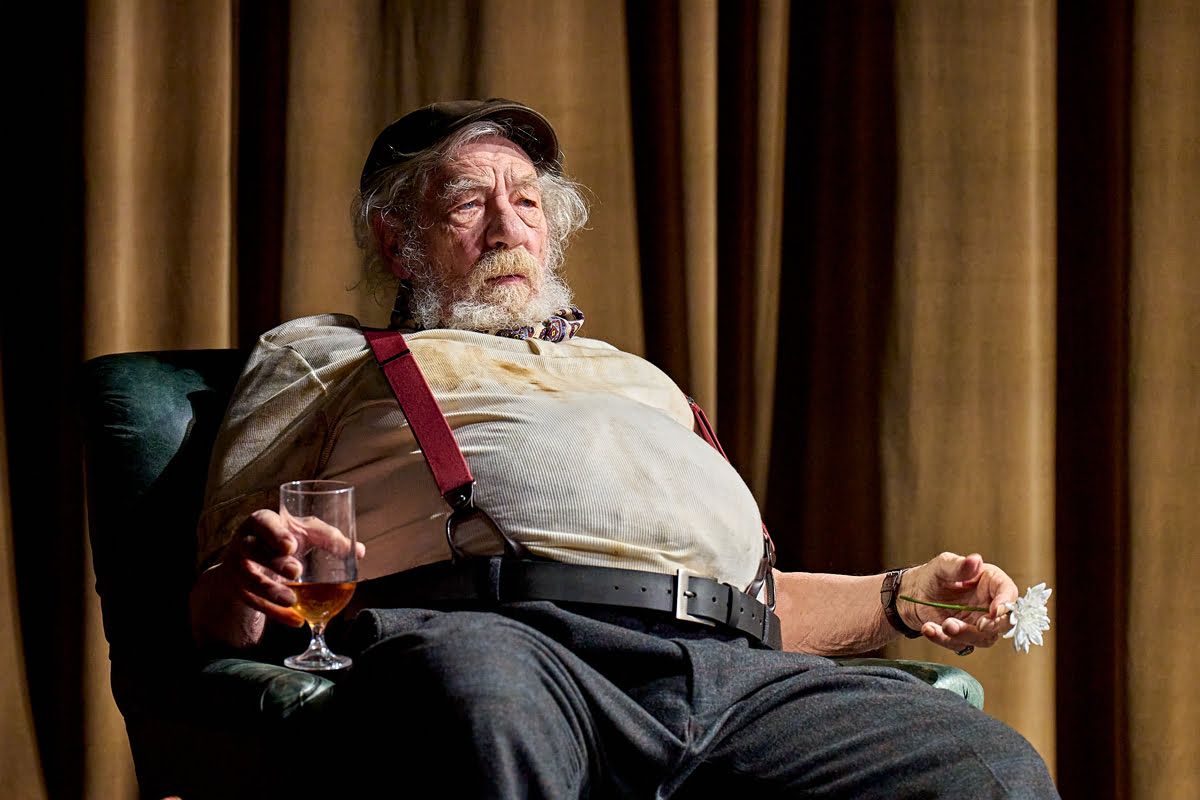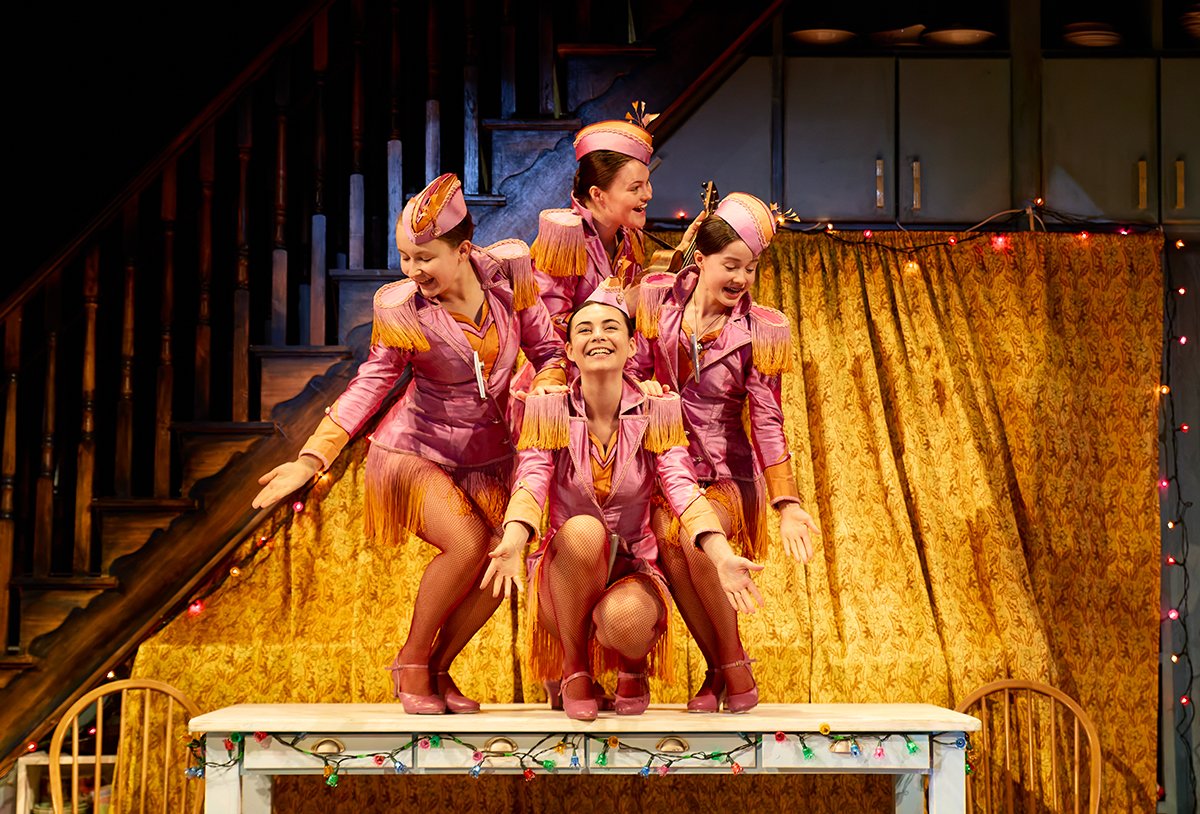
The Hills of California | Review
The impending death of a family member can bring up so much. It brings people home for the first time in years, it brings up long buried emotions, it makes you take stock of your life and your relationships both with the sick person and the people that connect you. That’s the setting of The Hills of California, the brilliant new play by acclaimed writer Jez Butterworth, reuniting with director Sam Mendes for the first time since the phenomenal success of The Ferryman in 2017.
The play entirely takes place in a guest house in Blackpool called Seaview (“I have looked out of every window and you can’t…see the sea”), we learn that the mother, once a matriarch, now lies upstairs dying of stomach cancer and could go any day now – “how long is a piece of string?”, it’s the long Summer of 1976 and hotter than it’s ever been. The youngest daughter Jill, played by Helena Wilson, has never left her mother’s side and is downstairs in the ‘public parlour’ where much of the action takes place.
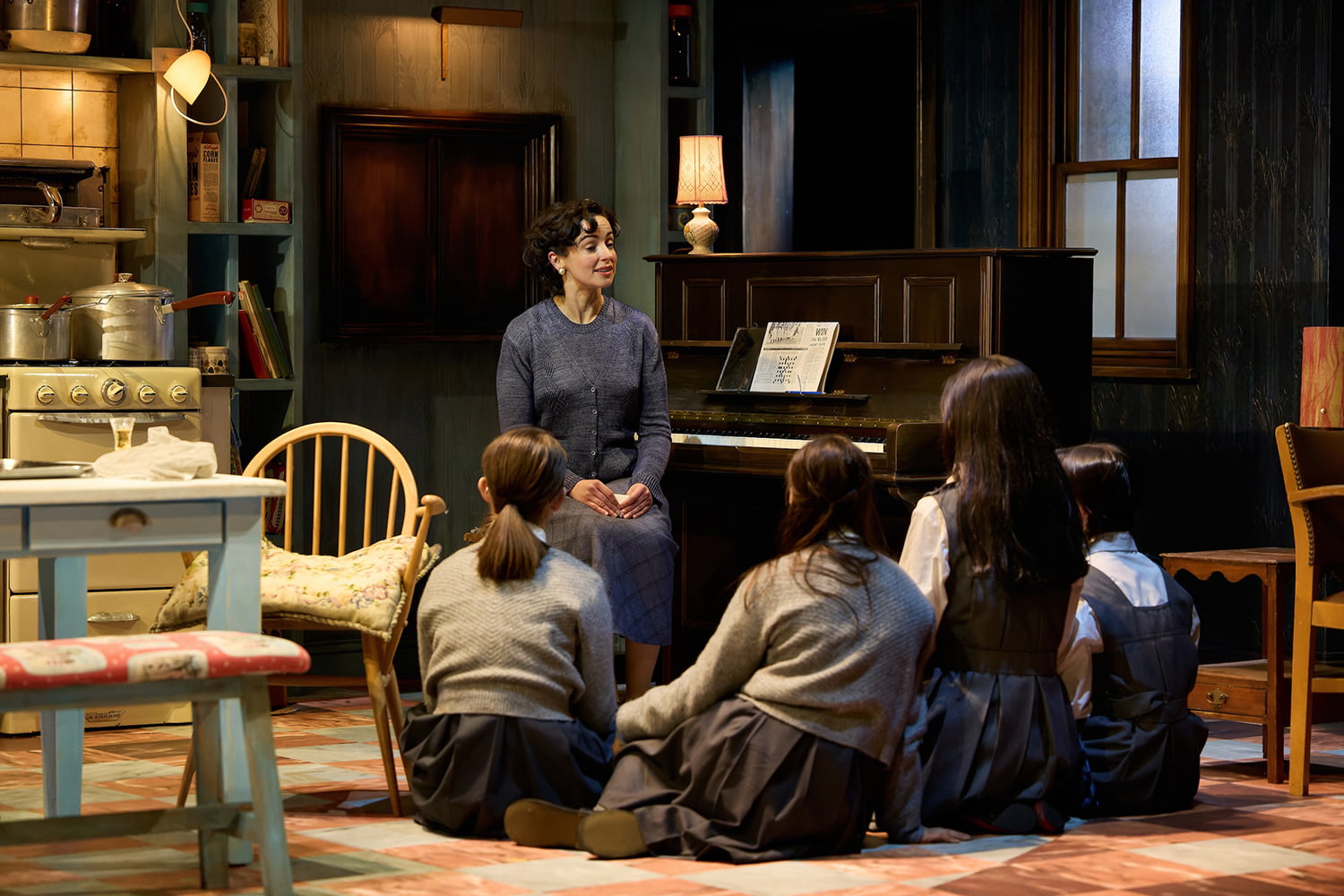
She is waiting for her two sisters, who arrive one by one – Gloria, the eldest played by Leanne Best, with her husband, portrayed by Shaun Dooley, and 2 kids in tow, and Ruby, played by Ophelia Lovibond, with her husband Dennis, depicted by Bryan Dick. It’s clear that despite one of them living only about an hour away in Rochdale, neither have been home much – if at all – in the last decade. There is a fourth sister, Joan, who is said to be coming in from Los Angeles, but her plane has been “delayed or cancelled” so whether she will even arrive is a matter for much speculation and some dispute between the sisters.
This atmosphere of heightened emotions is like a tinderbox waiting for a spark that’s seemingly never going to come (much like the impending death and the impending Joan). Gloria is clearly on edge and full of anger at life, the situation, the ‘bloody heat’, while Ruby is just drinking and waiting, trying to remember a song from their youth… And that’s when Rob Howell’s magnificent set literally does a 180 and we’re in the private parlour, it’s 20 years earlier, and here comes the context for why these sisters are the way they are.
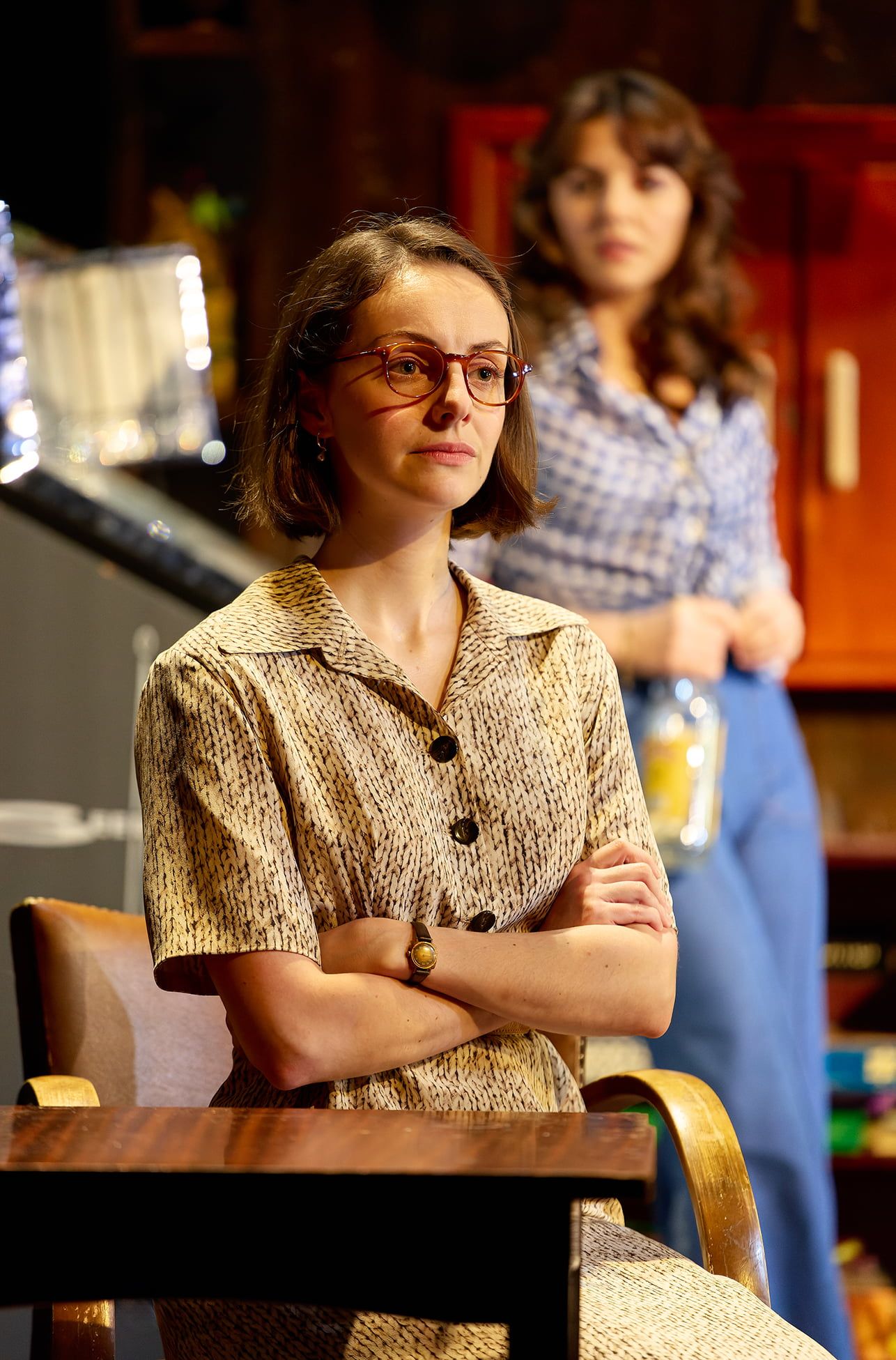
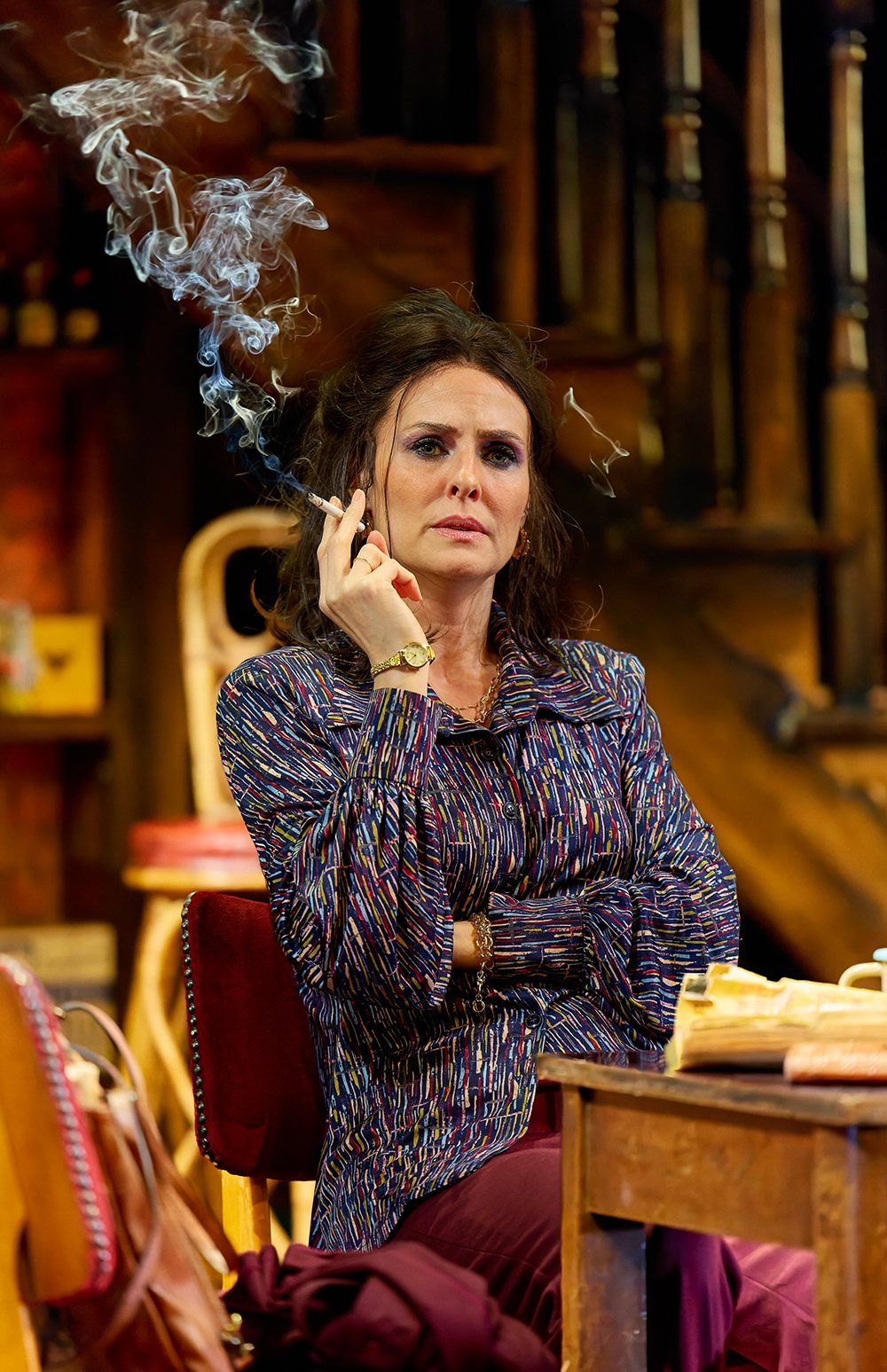
The sisters come in singing in perfect harmony, and their mother Veronica, Butterworth’s wife, Laura Donnelly, soon has them practising their harmonies at the breakfast table. Veronica is desperate for The Webb Sisters to be the next big thing. The masterful way the play flits back and forth between the 2 time periods put me in mind of the television drama ‘This Is Us’, allowing the audience to see both the originating moments and the impact, years later, almost simultaneously, making for a deep and rich narrative and really adding so much to the characters.
The flashback scenes transform Veronica from a dying 6 stone cancer patient hidden from sight up the never-ending mahogany stairs, to a woman who is single-mindedly obsessed with launching her girls to stardom – fulfilling the future that as far as she is concerned is already and unquestionably laid out for her girls. Donnelly delivers a moving and impassioned performance, showing such real pain, fear for her children, for her ambition. Veronica embodies the fierce and at times questionable ambitions of a mother living vicariously through her daughters.
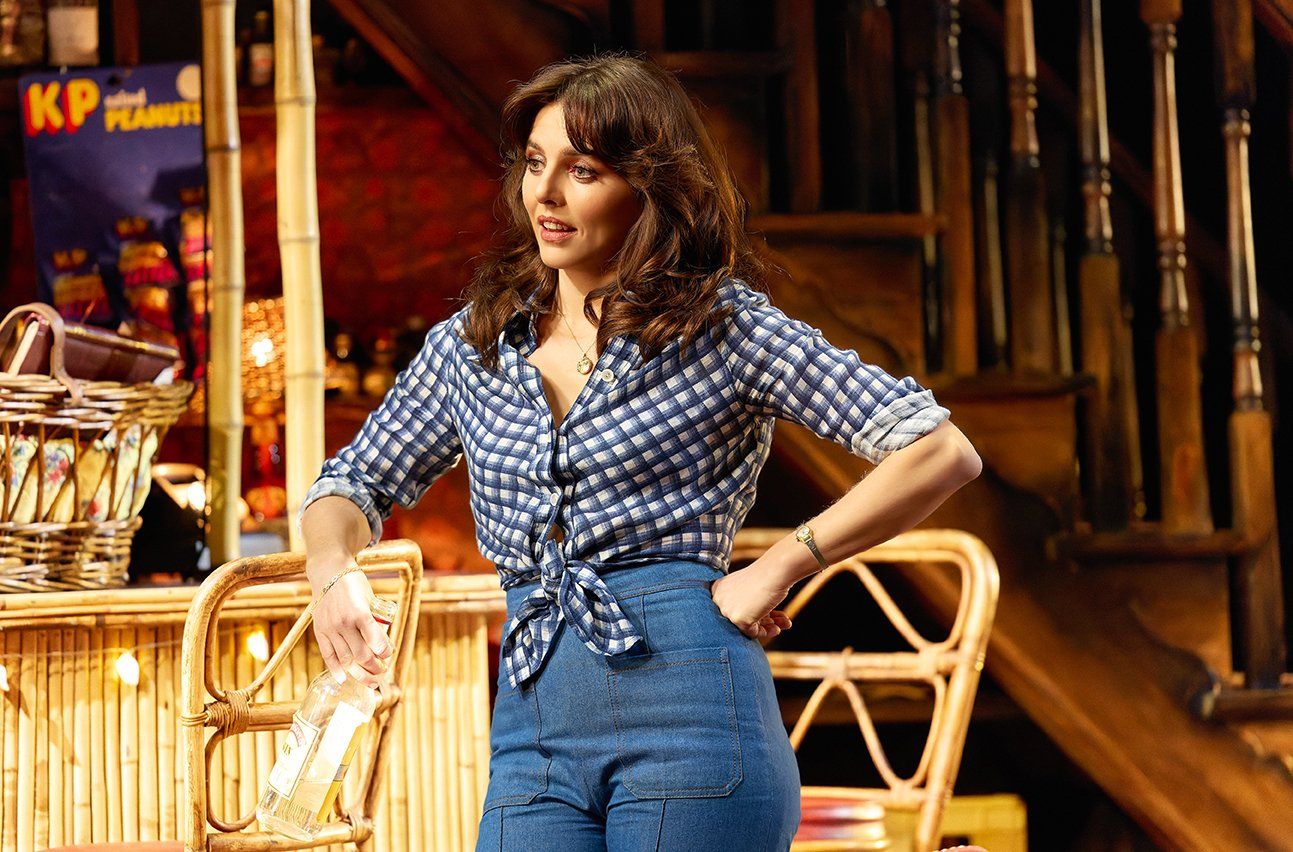
The 1950s scenes offer a stark contrast to the present, with Veronica’s younger self meticulously orchestrating every note and step of her daughters’ lives, blind to anything but the stage lights of success. These scenes are a heart-wrenching watch, as they lay bare the sacrifices made at the altar of fame. Donnelly gives a moving and at times disturbing performance, worthy of the Olivier award-winning actress that she is.
The performances across the board were outstanding. The stillness and steadfastness of Jill, the anger and resentment of Gloria, and the resigned despair of Ruby, were so beautifully and subtly portrayed. One moment that really stood out for me, near the end of the play, where Ruby breaks down almost in hysterics, had me clutching my chest and filled with emotion from the realism of Lovibond’s performance.
The Hills of California is funny, it’s sad, it doesn’t pull any punches, but despite some troubling themes being dealt with, above all I found it beautiful. Jez Butterworth’s characters are whole and rounded and their vulnerability makes it hard not to connect with them on a profound level. The ending was perfect and I, along with the rest of the opening night audience, leapt to our feet to applaud the tour de force that we had just witnessed.
I think it’s clear that I loved this play and I urge you to go and see it as soon as possible. The Hills of California is playing at the Pinter Theatre in the West End until 15th June. Tickets will sell fast, so don’t wait to book!
To book tickets visit www.haroldpintertheatre.co.uk/shows/the-hills-of-california
Words Nick Barr
Photography Mark Douet




